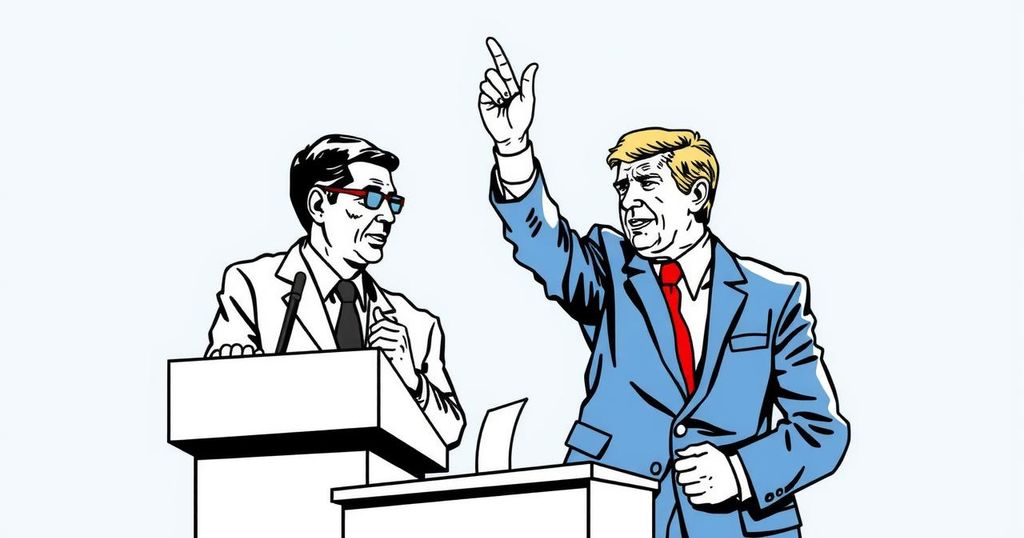Uruguay Engages in Close Presidential Run-off Election
Uruguay is holding a closely contested second-round presidential election, featuring Yamandu Orsi of the Broad Front against continuity conservative Alvaro Delgado. Opinion polls suggest a tight race, with significant efforts to capture undecided voters post-first round. The results are particularly pertinent in light of global electoral trends impacting incumbents.
Uruguay, known for its peaceful environment and progressive policies, is engaged in a second-round presidential election featuring moderate candidates. Yamandu Orsi of the opposition’s Broad Front is competing against Alvaro Delgado of the continuity conservative National Party, who is supported by the Colorado Party. With final opinion polls indicating a remarkably close race, the projected voter margin is fewer than 25,000.
Polling stations opened at 8 AM and are set to close at 7:30 PM local time, with results anticipated shortly thereafter. Orsi, who garnered 43.9 percent of the vote in the first round, advocates for a “modern left” policy, while Delgado, with 26.8 percent, promotes the achievements of President Lacalle Pou, who is unable to seek re-election. Both candidates are vying for the support of voters from smaller parties and those who did not participate in October’s elections.
As the year concludes, a key question remains whether Uruguay will follow the global trend of declining support for incumbent parties due to economic challenges. Despite rising inflation concerns, the stability of the Uruguayan economy could weigh in favor of Delgado, who posits that there are few signs of a significant political shift among the electorate. Analysts have noted that a majority for either candidate does not exist in the lower house following the elections, affecting the forthcoming government dynamics.
The unique political landscape of Uruguay contrasts sharply with the polarized environments observed in neighboring countries such as Argentina, Brazil, and Mexico. Uruguayan politics encompass a blend of conservative and liberal views, allowing for a less antagonistic electoral process. With a population of approximately 3.4 million citizens, the small nation’s political affairs tread lightly between traditional values and modern leftist approaches, making this election particularly noteworthy within the context of increasing global electoral shifts against incumbent leadership.
In conclusion, the Uruguayan presidential run-off reflects a significant moment within the nation’s democratic framework, characterized by moderate candidates and a unique political blend. With potential voter divides slim and public sentiment indicating reluctance towards extreme policy changes, both contenders must strategically attract undecided voters to secure victory. As the country concludes a historically eventful year in elections, observers will watch keenly to see if Uruguay deviates from global electoral trends concerning incumbent party performances.
Original Source: www.begadistrictnews.com.au




Post Comment